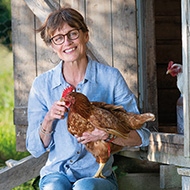
BHWT offers funding opportunities to improve pet hen health.
The deadline is approaching for veterinary nurses and students to apply for a research grant funded by the British Hen Welfare Trust (BHWT).
Students and veterinary nurses can apply for a grant of up to £3,000 to research a topic on the behaviour and welfare of chickens, specifically to improve pet hen health.
Six grants are available, and the application deadline for this round of grants is 15 July 2022.
Applications can be made via the online application form on the BHWT website, and must also include the CV of the principal applicant and any co-applicants, a summary of the research to be conducted, a summary of how the research will benefit pet hens, a letter of support from the head of department or practice principal, and approval from an Ethical Review Committee.
The BHWT's desire to advance veterinary education on pet hens has also inspired the organisation to launch an online course on caring for poultry, which is aimed at veterinary surgeons and veterinary students.
Poultry Health, available for free on FutureLearn and created in collaboration with the University of Nottingham, features videos of surgical procedures on poultry, and a range of educational material on caring for poultry.
“As more people discover the joy of keeping hens as pets, the likelihood of a chicken being brought into your practice can only increase,” said Jane Howorth MBE, founder and CEO of the BHWT.
“We know that the veterinary curriculum doesn’t cover poultry in-depth; to plug that educational gap and help vets feel prepared for the possibility of caring for pet hen, we have created these research grants and online course.
“I’d like to encourage everyone to take the opportunity for funded research into this area and help grow the evidence about poultry health and welfare while gaining valuable, specialist experience and knowledge.”
Any veterinary nurses or students interested in applying for the research grants can visit the BHWT's website for further information.
Image (C) The British Hen Welfare Trust



 The Veterinary Medicines Directorate (VMD) is inviting applications from veterinary students to attend a one-week extramural studies (EMS) placement in July 2026.
The Veterinary Medicines Directorate (VMD) is inviting applications from veterinary students to attend a one-week extramural studies (EMS) placement in July 2026.